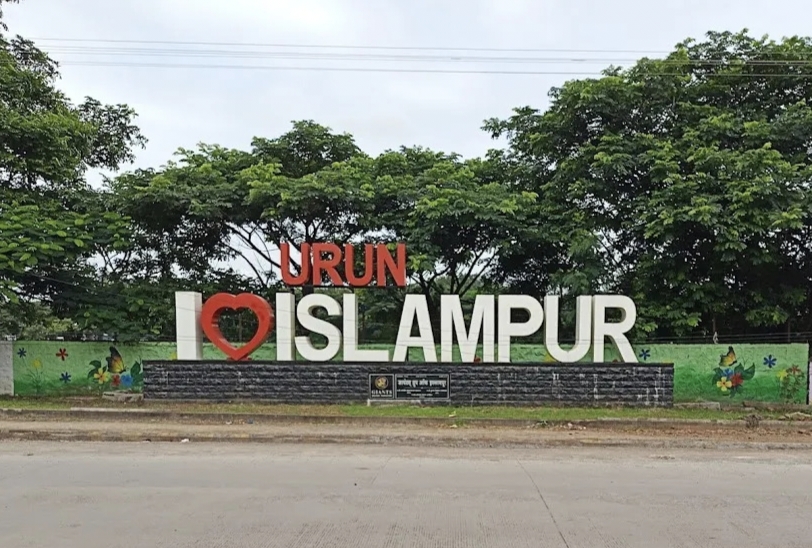Maharashtra Drops ‘Islam’ from Islampur: Political Symbolism or Cultural Cleansing?

Sachin Garud, 50, a historian from Islampur, said, “The demand to rename Islampur to 'Ishwarpur' has been ongoing for several years, particularly since the 1970s. In 1986, then Shiv Sena chief Balasaheb Thackeray also publicly stated, 'Not Islampur, but Ishwarpur.' The argument in favour of the demand is town's alleged original name, Ishwarpur. But it is in fact a desire to erase traces of Islamic history.”
“During late medieval period, under the Adil Shahi dynasty of Bijapur, the town of Islampur is believed to have been established. This is likely when it acquired the name 'Islampur'. Following the Adil Shahi rule, Maratha power was established in this region,” he added.Pattern of Renaming Across Maharashtra
The move follows a trend. The BJP-led Maharashtra government has previously renamed several cities - Aurangabad is now Chhatrapati Sambhajinagar, Osmanabad has become Dharashiv and Ahmednagar is now Ahilyanagar. These renamings are often presented as "corrections" to "historical wrongs" or as tributes to noted Hindu wariors or prominent personalities and legacies. However, many view them as calculated political steps aimed at consolidating support among specific voter segments.
Raju Dhake, a 60-year-old resident of Islampur, expressed concern over the social impact of the name change, “The renaming of Islampur is highly likely to have severe negative consequences for religious and social harmony, especially in the form of religious polarisation, social tension and political instability. Such decisions increase local-level tension.”
Residents point to a lack of attention to basic civic issues such as deteriorating road infrastructure, water scarcity and insufficient health and educational facilities. “This decision seems intended to divert attention from development issues,” he added.
“I have lived here all my life. We have never had problems with the name. What we need is better roads and clean drinking water, not a new name,” he said.
Fears of Cultural Erasure and Polarisation
A number of Hindu and Muslim community leaders have raised concerns that renaming places with Islamic names may gradually erase Muslim cultural heritage.
Shahjahan Maghdum, a native of Islampur and Executive Editor of Shodhan, a Marathi weekly published from Mumbai, said, “The renaming is undoubtedly politically motivated. In the local elections in Islampur in 2023, campaigning based on religious issues led to voter polarisation, with the BJP (Bharatiya Janata Party) and the Shiv Sena alliance bagging 60% of the votes, while Opposition parties received 35%. Renaming could heighten political tension at the local level, impacting social harmony.”
He cautioned that the name change could foster communal tensions in a region that has been known for sufi saints.
Dhake pointed out that the Islampur Municipal Council had rejected the renaming proposal back in 2020, when an elected body was still in place. Later, members of the Shiv Pratisthan collected around 10,000 signatures and submitted it to the district collector. He highlighted that the town's total population, according to the 2011 Census, exceeds 67,000, suggesting that a majority did not support the move.
Local body elections have not been held in much of rural Maharashtra for more than four years. Islampur currently lacks an elected municipal council. “How can the government change the name without the approval of the municipal council?” Dhake asked.
Opposition Slams 'Name Politics'
Local Congress MLA Aslam Shaikh called the renaming a symbolic distraction from serious civic issues in the town. He cited problems, including poor roads, lack of clean water and inadequate public facilities. “So how long will you fool people like this?” he asked.
Mumbai Congress MLA Amin Patel also criticised what he termed "name games", urging the government to prioritise employment, healthcare and essential services.
Shiv Sena (UBT) leader Uddhav Thackeray told the government, “Develop the city whose name you are changing as changing the name does not change the situation.”
Govt Justifies Move as 'Historical Correction'
Leaders from the ruling alliance defended the decision, saying it addressed a long-standing public demand. They argued that Ishwarpur represents the town’s earlier identity and aligns with cultural sentiments.
Maharashtra’s Food and Civil Supplies Minister claimed in the Legislative Assembly that the proposal was supported by cultural organisations and was not meant to alienate any community.
